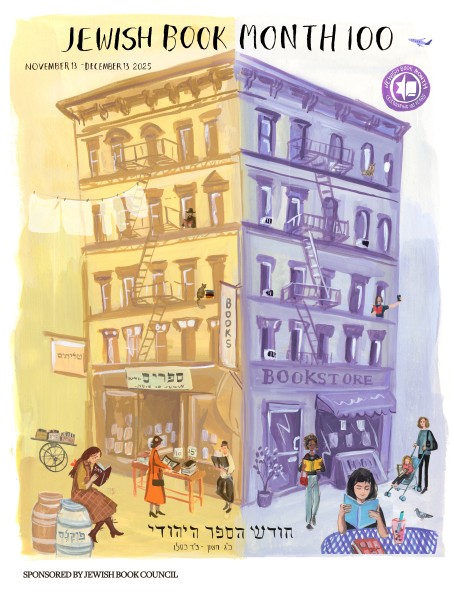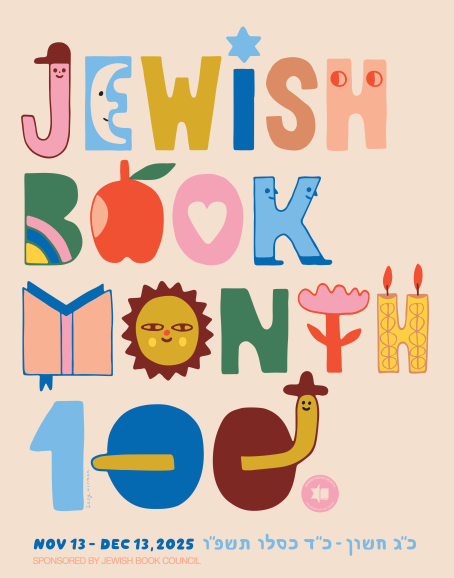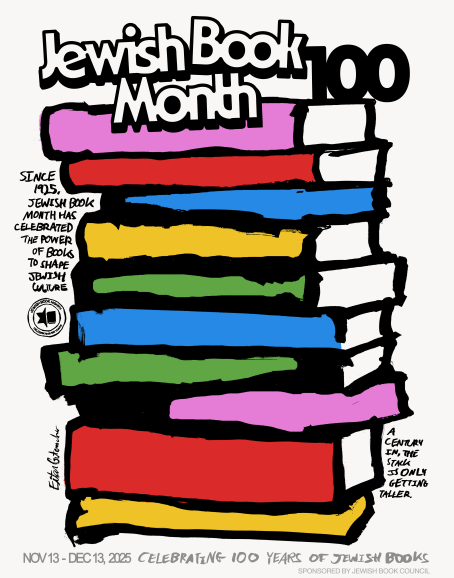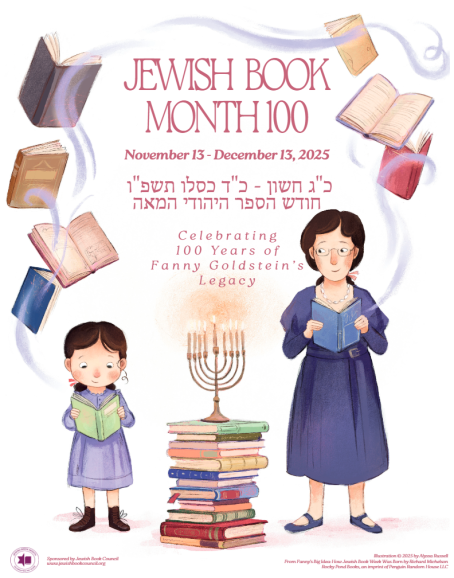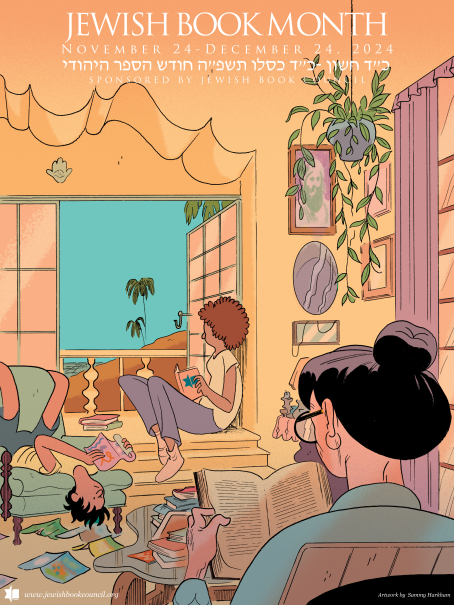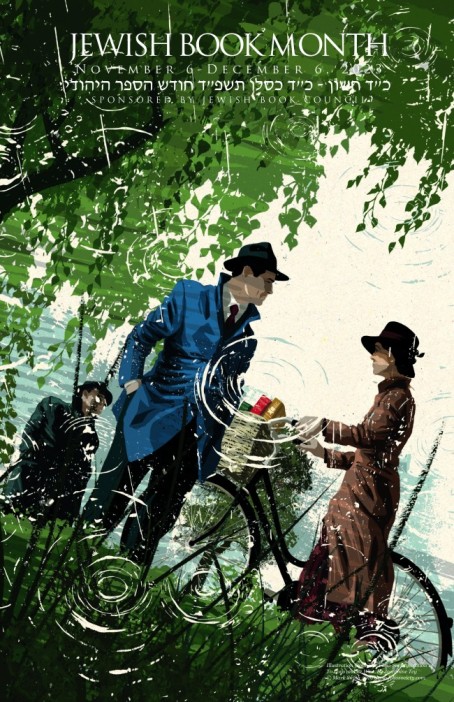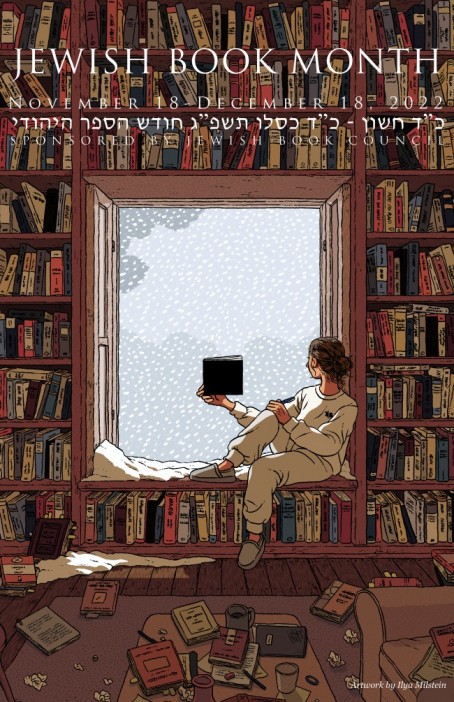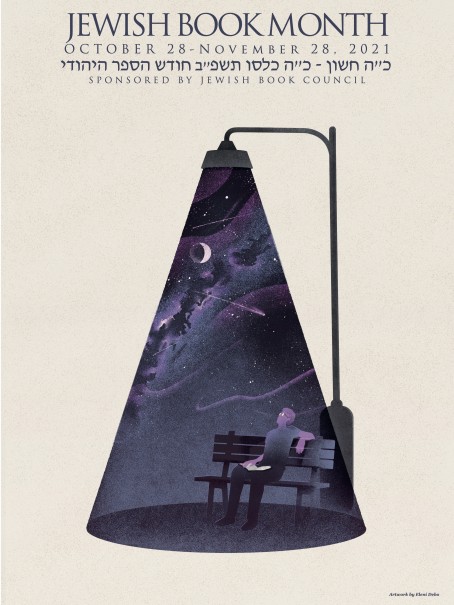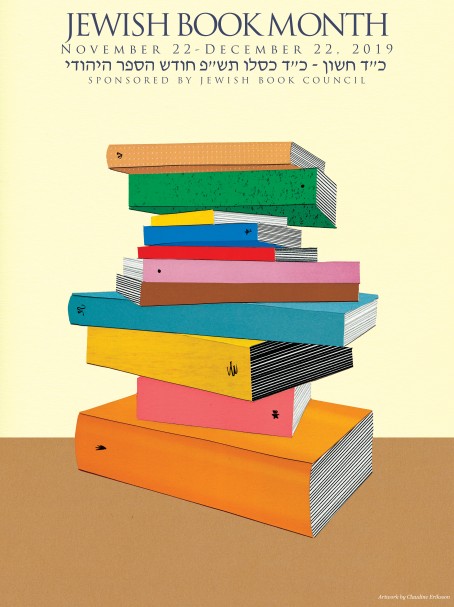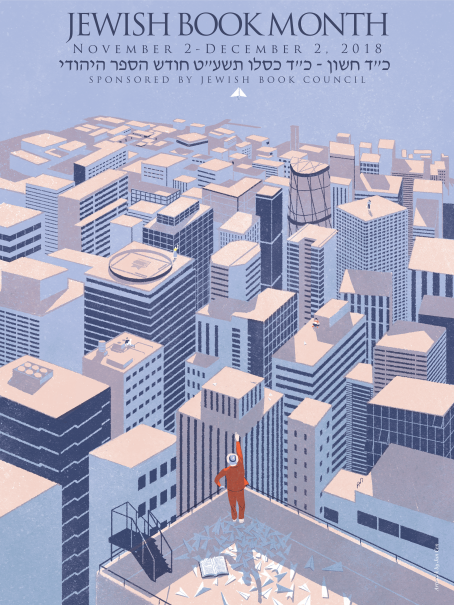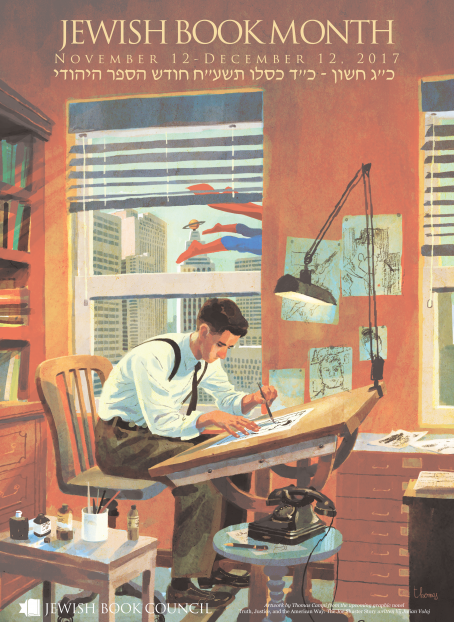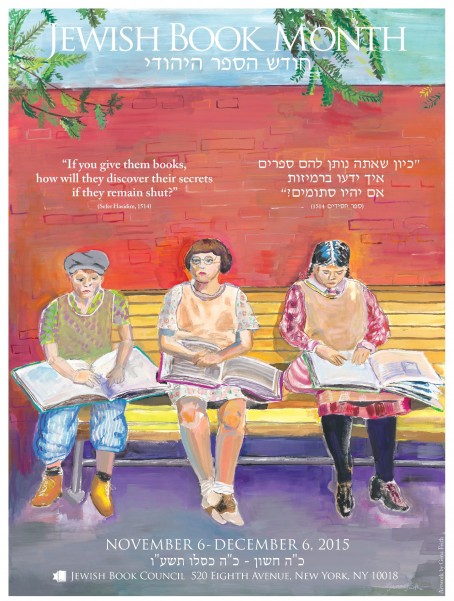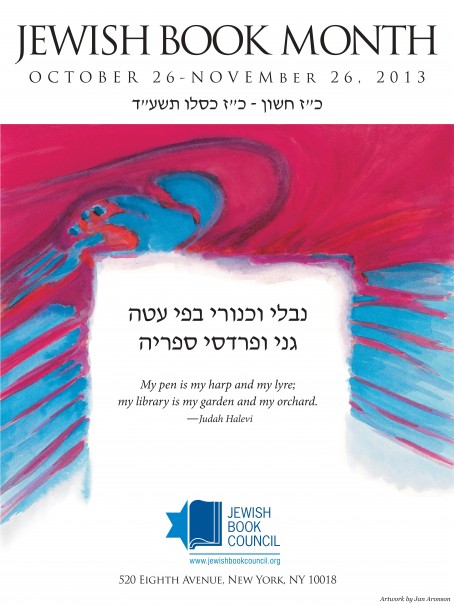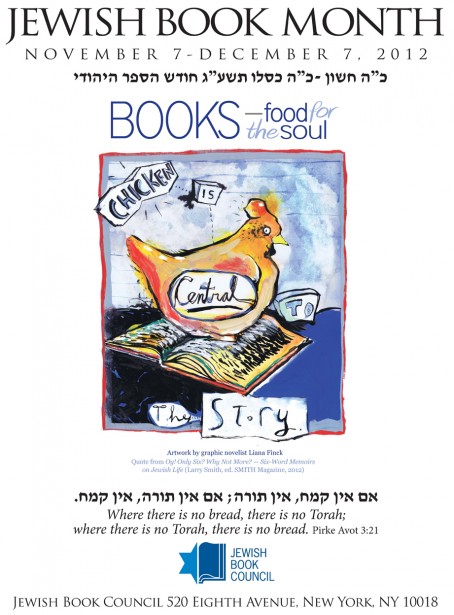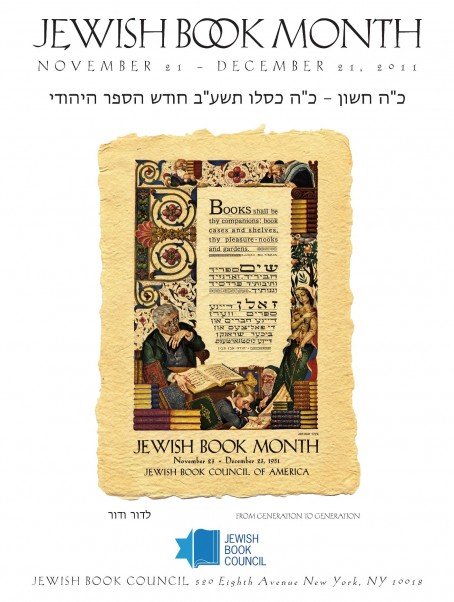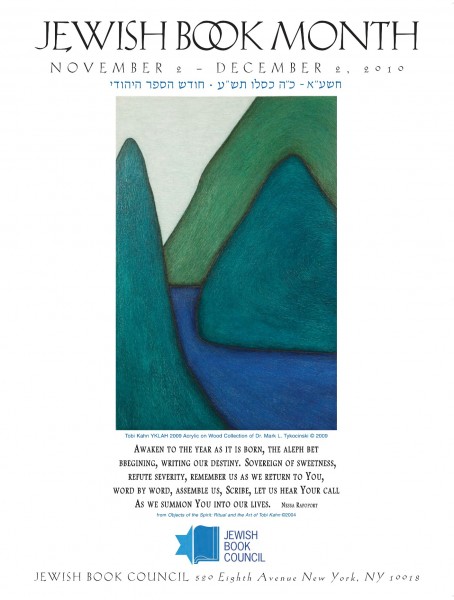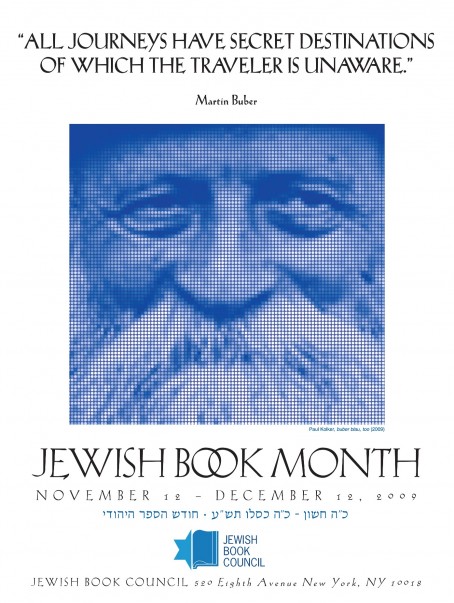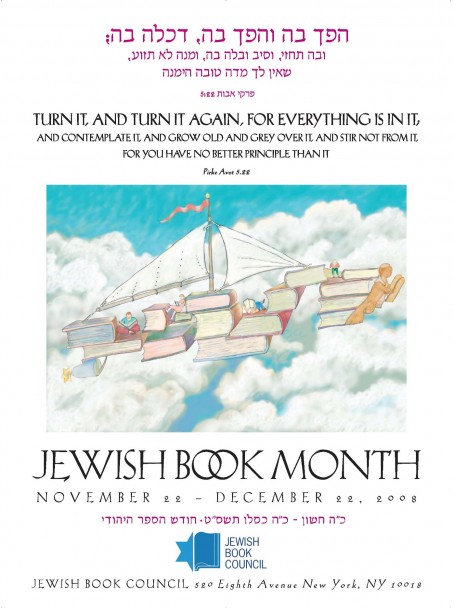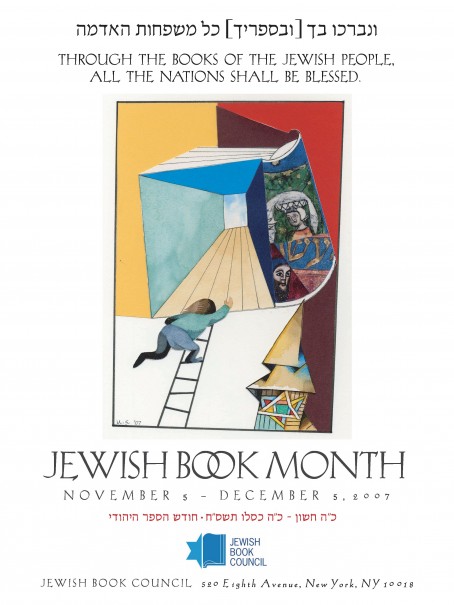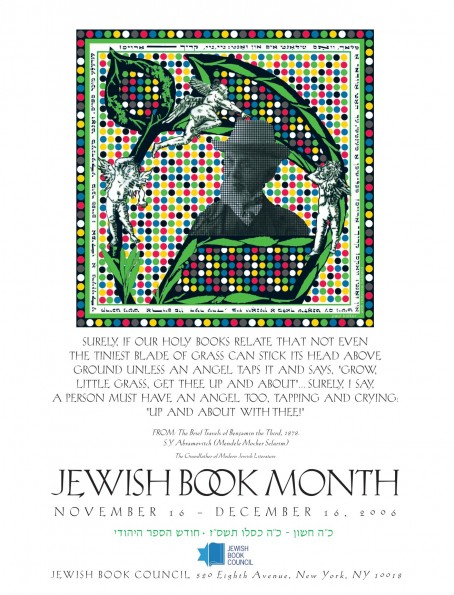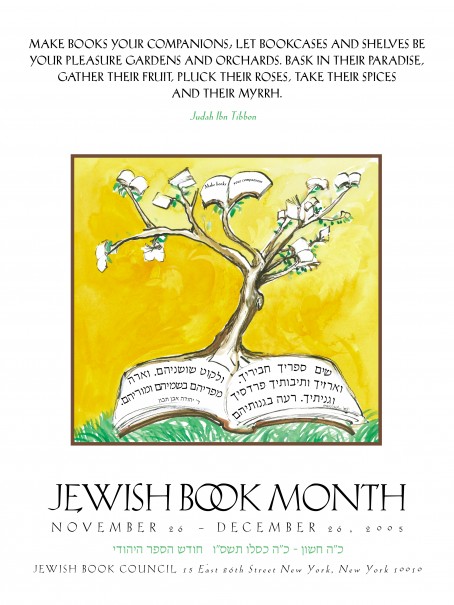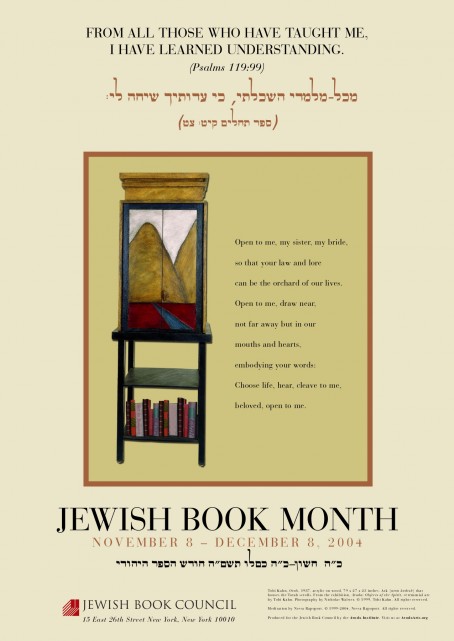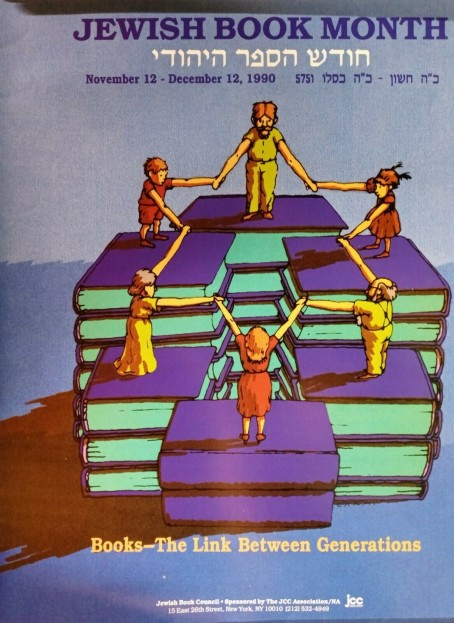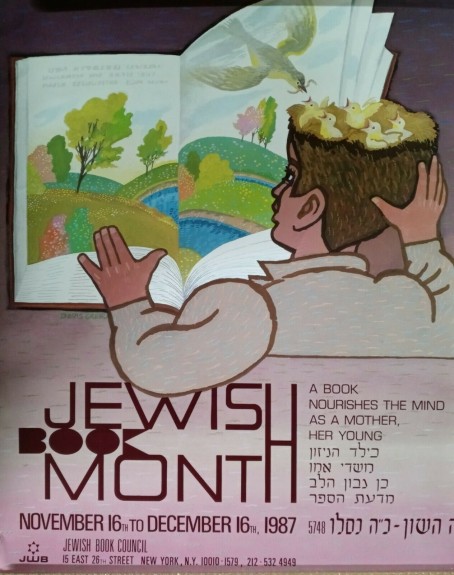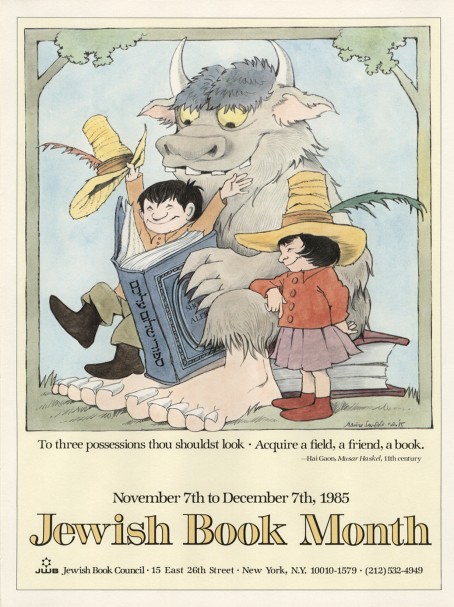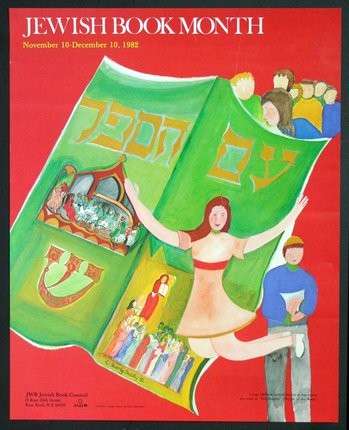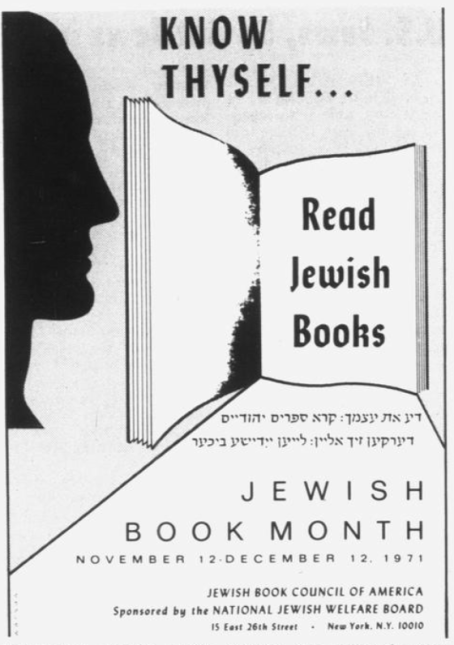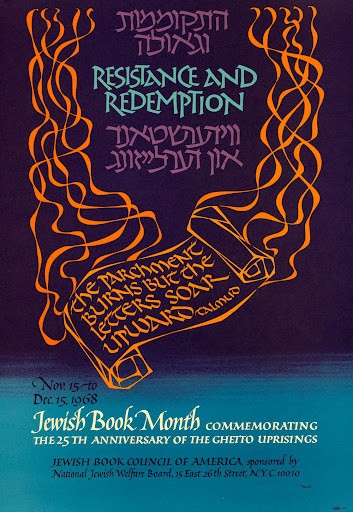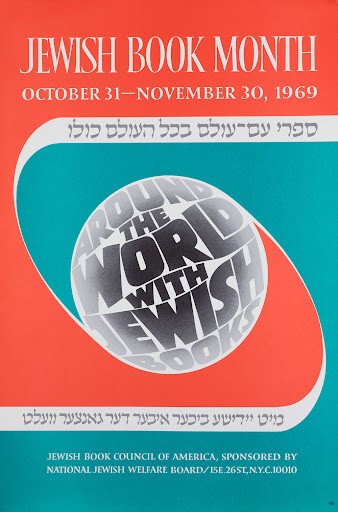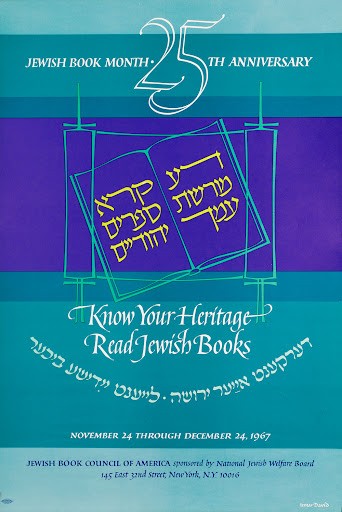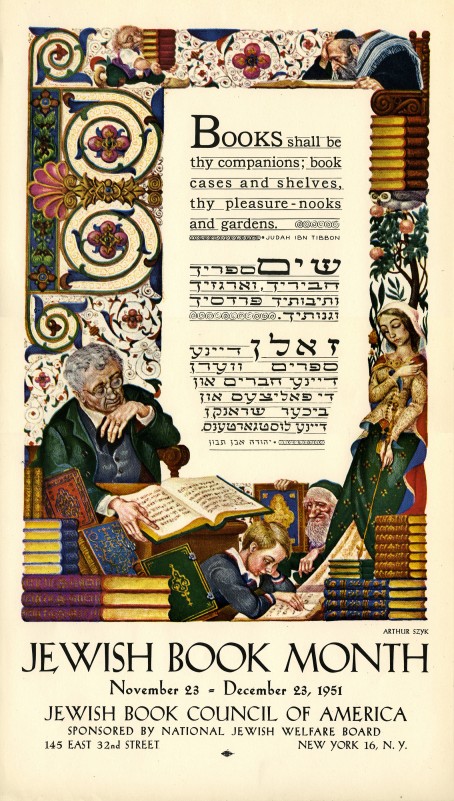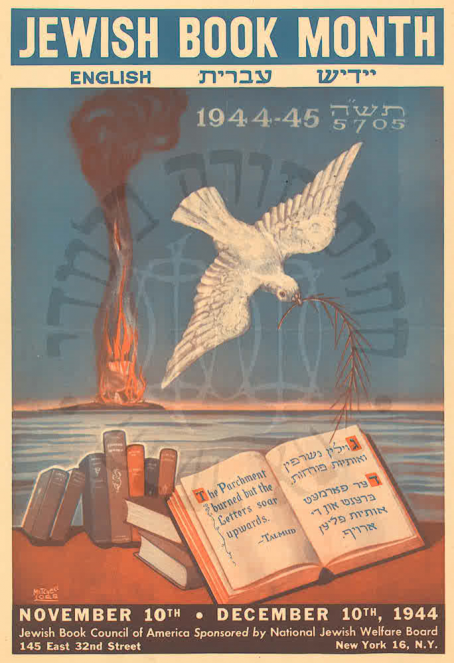Jewish Book Month

History
Jewish Book Month traces its origins to Fanny Goldstein’s 1920s creation of Jewish Book Week. In 1925, Jewish communities across the country adopted the week-long celebration, timing the events to coincide with Shavuot. In 1940, the event was shifted to the month before Hanukkah, when it is still observed today.
Excitement and enthusiasm built for the numerous activities planned across the country, and in 1943 Jewish Book Week was extended to Jewish Book Month. One year later, Fanny Goldstein’s National Committee for Jewish Book Week was transformed into the Jewish Book Council. Each year, a unique poster was created in honor of the month-long joyful celebration of Jewish literature. See below for select past JBM posters.
Additionally, the JBC Network grew out of this national desire to bring authors and literature to widespread communities. Today, the JBC Network has roughly 120 member organizations across North America and provides over 250 authors with a platform for sharing their books each year. JBC Network arranges over 1,300 programs a year, both virtually and in-person, for our member sites, with wide-ranging and engaging programming.
Historically, Jewish Book Month has been celebrated with rich and nuanced activities and events. See below for a peek at what’s been done! Write us a note at info@jewishbooks.org — we’d love to hear and see what your community has done to celebrate Jewish literature throughout the years!
Ways to Celebrate:
- Register to become a Jewish Book Month 100 Community Partner
- Attend the annual Jewish Writers’ Conference which falls during during JBM.
- Subscribe to JBC’s annual literary journal, Paper Brigade, which is published during Jewish Book Month.
- Read a Jewish book.
- Buy a book by a Jewish author.
- Organize a community read.
- Join or start a book club.
- Read a Jewish book to children in your home or community.
- Create a bulletin board dedicated to Jewish Book Month in a public community space.
- Invite an author to speak in your community.
- Attend an author event at a local synagogue, JCC or Jewish Federation.
- Display a table of Jewish books in your library, synagogue, JCC.
- Sign up to get weekly book reviews and news from Jewish Book Council.
- Ask your local library to stock Jewish books that you love.
- Ask your local book store to stock Jewish books that you love.
- Recommend a book to friends, your book club or your social media network.
- Find a new book to love on Jewish Book Council’s website.
- Organize a school read-a-thon.
- Invite your local school to join one of JBC’s school author events.
- Visit the Yiddish Book Center online or in Amherst, MA to explore thousands of works by Yiddish writers.
- Have a delicious meal and read at book at Lehrhaus in Somerville, MA.
- Past JBM posters can be purchased on our website here.
- If you will be in Jerusalem, visit the beautiful new National Library of Israel.
- View the 30 Days 30 Authors series from past years which featured an author video for each day of JBM, which you can find on our website!
- Listen to a podcast, like the newest one that’s all about Jewish books, The Five Books, or the Jewish kidlit podcast The Book of Life.

From 2008 JBM Poster
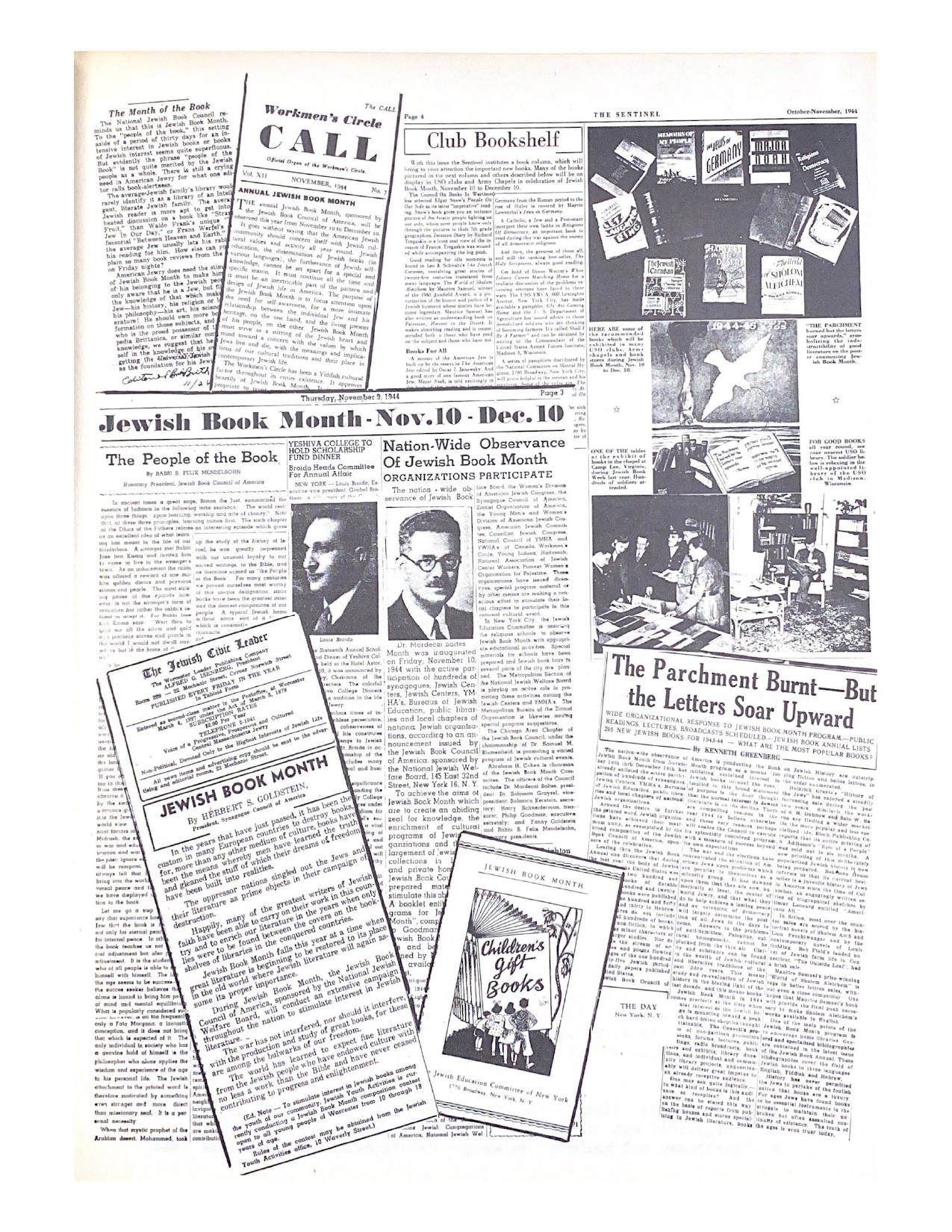
Resources
If you are a programmer at a Jewish institution interested in hosting a Jewish book festival or events during Jewish Book Month, consider joining the JBC Network, a program that connects communities with over 250 Jewish-interest authors each year
Below are several additional program suggestions for Jewish Book Month:
- Register to become a Jewish Book Month 100 Community Partner
- A community read
- A read-a-thon
- Create a bulletin board dedicated to Jewish Book Month
- Hold a Jewish cookbook demonstration
- Display a table of Jewish books in your library
- Send out a bookmark template to your community, and have members create a Jewish Book Month bookmark
- If you are a school librarian or English teacher, ask your students, “What does reading Jewish mean to you?” and put their answers on display for the school to see
- If you are a school librarian or English teacher, have students put together a book report on a Jewish author

